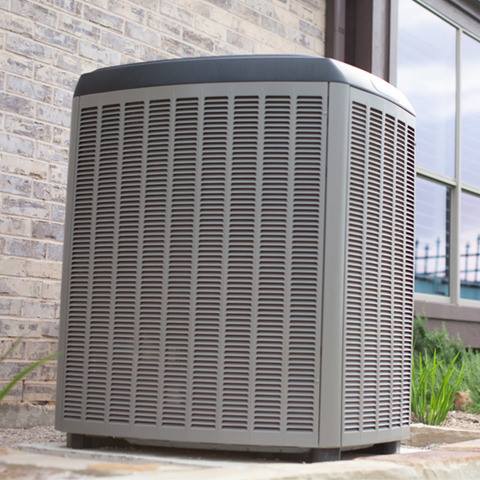It’s no secret that we live in a rainy environment. In fact, as we post this, the drizzle is falling in Olympia. So, how does this weather affect your heating and cooling system? Well, here’s the short answer: rain isn’t harmful to your unit. Here’s a more in-depth explanation:
Your outdoor unit is made to withstand most weather patterns.
Average seasonal rain patterns will not have a negative impact on your AC unit. In fact, some rain can help remove vegetation or debris that could otherwise remain lodged in the unit.
Your unit’s hardware is designed for durability, from the materials it is made from to the way the AC unit actually works. But the system is not at peak performance when it’s burdened with leaves, dirt, or other buildups. This means that if your area has been short on rain during the spring and/or fall months, you may want to spray the unit down with a hose. Don’t worry about getting the electrical components wet — any electrical wiring, such as those used in the condenser coil, will be insulated from wet or rainy conditions.
What about more severe weather?
Severe weather conditions, such as flash floods, are a different story. Any water that submerges the outdoor condensing unit could result in a short circuit, ultimately damaging the unit. This can also be a concern when lightning is present and poses a risk of striking the unit directly.
Storm Damage:
Even though heavy rains cannot damage your AC unit, the winds accompanied by the same rain can leave dirt, leaves, twigs, and other debris to damage the condenser fan grille. Even objects falling on your unit, such as tree branches, from the storm can cause damage. It is important to note that if there is damage on the exterior, the interior might be at risk too. Therefore, it is necessary to inspect both the exterior and interior of the unit once the storm subsides.Flooding:
Central AC units are built to withstand different weather conditions. Although, if your area is experiencing heavy rains with floodwaters exceeding 15 inches, it is advisable to get your unit inspected by a professional contractor.
Corrosion:
Many homeowners prefer to cover their AC units for the winter if their internal parts are exposed. Avoid covering your unit with plastic wraps or garbage bags because the moisture from the condensation can stay trapped inside rusting and corroding metal parts. It is advised to use a covering that allows ventilation. Lack of ventilation or proper openings in the cover can increase the growth of mold and mildew causing further damage to the unit.
It’s good to know that you won’t have to worry about your AC unit withstanding normal weather conditions. But, when facing a more severe forecast, these simple precautions can go a long way. Of course, if you need to get your unit serviced, contact Air Handlers today!
